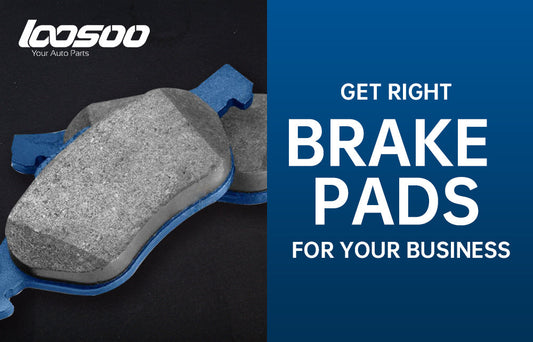La vida útil de los frenos de BMW depende de diversos factores, como los hábitos de conducción, las condiciones ambientales, el material de las pastillas y las prácticas de mantenimiento. En esta guía completa, analizaremos en profundidad los factores que afectan la longevidad de los frenos de BMW y ofreceremos valiosos consejos de mantenimiento para optimizar su vida útil.
Las pastillas de freno suelen durar entre 40.000 y 112.000 kilómetros. La vida útil real depende de factores como los hábitos de conducción, el modelo específico y la calidad de las pastillas. Además, la densidad de los discos de freno puede prolongar su vida útil, llegando a durar alrededor de 112.000 kilómetros. Es importante supervisar el estado de las pastillas de freno e inspeccionarlas periódicamente para garantizar la seguridad y el rendimiento del sistema de frenado.
Factores que afectan la vida útil de los frenos
Hábitos de conducción
La conducción agresiva, el frenado frecuente y las cargas pesadas pueden acelerar el desgaste de los frenos, reduciendo potencialmente la vida útil de los frenos de BMW.
Condiciones ambientales
Conducir en tráfico con frecuentes arranques y paradas, terrenos montañosos o áreas con tratamientos de carreteras corrosivos puede afectar la longevidad de los frenos debido al aumento de la fricción y el desgaste.
Material de las pastillas de freno
El tipo y la calidad de las pastillas de freno utilizadas en los vehículos BMW pueden influir significativamente en su vida útil. Las pastillas de freno OEM (Fabricante de Equipo Original) y las opciones de repuesto pueden ofrecer distintos niveles de durabilidad y rendimiento.
Prácticas de mantenimiento
Las inspecciones periódicas de los frenos, el reemplazo oportuno de los componentes desgastados y la lubricación adecuada pueden contribuir a prolongar la vida útil de los frenos de BMW.

Consejos de mantenimiento para prolongar la vida útil de los frenos de BMW
Inspecciones de rutina
Inspeccionar periódicamente el estado de las pastillas de freno, los rotores y las pinzas puede ayudar a identificar el desgaste y solucionar posibles problemas de forma temprana, evitando daños mayores.
Reemplazo de pastillas de freno de calidad
Optar por pastillas de freno de alta calidad, ya sean OEM o de recambio, y garantizar una instalación adecuada puede mejorar la longevidad y el rendimiento de los frenos de BMW.
Lubricación adecuada
La aplicación de lubricantes adecuados a las correderas de la pinza y a los puntos de contacto puede reducir la fricción y el desgaste, lo que contribuye a prolongar la vida útil de los frenos.
Consideraciones ambientales
Minimizar la exposición a tratamientos corrosivos en la carretera, limpiar los componentes de los frenos y abordar el óxido y la corrosión pueden ayudar a preservar la longevidad de los frenos de BMW.
En conclusión, la vida útil de los frenos de un BMW depende de los hábitos de conducción, los factores ambientales, el material de las pastillas y las prácticas de mantenimiento. Al comprender estos factores y seguir consejos de mantenimiento proactivo, los propietarios de un BMW pueden optimizar la vida útil y el rendimiento del sistema de frenos de su vehículo. Para obtener asesoramiento profesional sobre el mantenimiento y la sustitución de frenos, se recomienda consultar con técnicos certificados de BMW.










